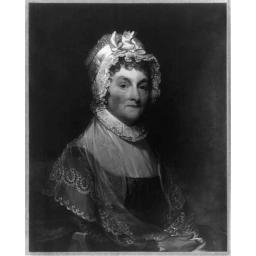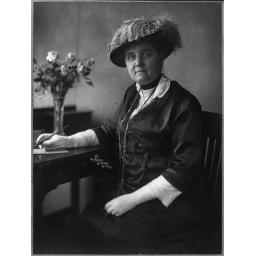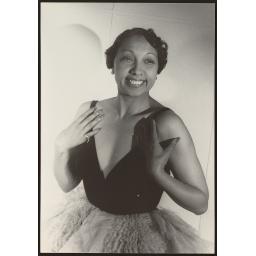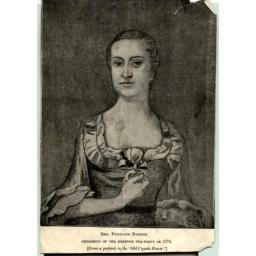Nanyehi (Nancy) Ward
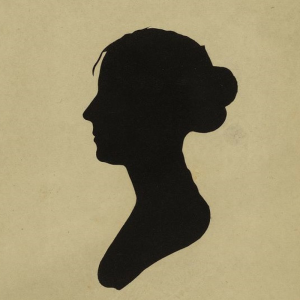
Beloved Woman of the Southeastern Cherokee, Nanyehi (Nancy) Ward was a respected warrior and leader who acted as a go-between with white settlers.
Ward was born into the prestigious Wolf clan in the sacred Chota region the Cherokee Nation (the modern day Eastern Tennessee hills). Her mother was Tame Doe; her father was Fivekiller (part Delaware or Lenni Lenapé). She married and had two children, son Five Killer and daughter Catherine.
In 1755, Ward fought alongside her husband Kingfisher against land rivals the Creeks in the Battle of Taliwa. When he was killed, she rallied, leading a charge that brought victory. The Cherokee honored her by naming her Ghighua, or "Beloved Woman.” The Cherokee believed that the Great Spirit could speak through the Beloved Woman, making her opinion influential in tribal government. As Beloved Woman, Ward headed the Women's Council, sat on the Council of Chiefs, and had power over prisoners and maintaining peace.
As white settlers moved onto Cherokee lands, several Cherokee women married Euro American men. Nanyehi’s second husband was Bryant Ward, a British trader. She renamed herself Nancy Ward, learned English, and as she studied Anglo American ways, she increasingly believed that coexistence and compromise – rather than violence – was the best response to white settlers. Likely motivated by her desire for peace, Ward sometimes warned white settlers of possible Cherokee attacks. She also freed captive Lydia Bean, who in return taught Ward how to make butter and cheese. As hunting stocks dwindled, Ward introduced cows into the Cherokee economy.
Ward’s hope for peace was realized briefly after the French and Indian War in 1763, but tensions mounted during the American Revolution. Most Cherokees sided with the British during the Revolution, regarding colonists as invaders who took Cherokee lands. Ward advocated for peace, again advising colonists of planned Cherokee attacks and freeing some white prisoners. Historians debate her motives: some say she supported the colonists’ cause against the British; others believe she was trying to retain friendships with powerful Euro American leaders; and others argue she was pragmatic, recognizing that the outnumbered Cherokee were best served by avoiding further conflicts.
In 1781, Ward and her family were spared from becoming prisoners when their village was captured. In July of 1781, she participated in negotiations for a peace treaty between the Cherokee and settlers and helped negotiate the 1785 Treaty of Hopewell between the Cherokee and the new United States.
By the early nineteenth century, Ward worried about Cherokee land losses to whites. At age seventy-nine and too weak to attend a Council meeting, Ward sent a message urging her people not part with any more land. By 1819, the lands she grew up on were sold, and she was forced to relocate. She returned to Chota and spent her final years running an inn. Considered a hero of the American Revolution, in 1923, the Nancy Ward Chapter of the Daughters of the American Revolution built a monument to her near her grave near Benton, Tennessee.
Edited by Debra Michals, Ph.D.
2015
- Alderman, Pat. Nancy Ward: Cherokee Chieftainess. Johnson City, TN: Overmountain Press, 1990.
- Berkin, Carol. Revolutionary Mothers: Women in the Struggle for America’s Independence. New York: Alfred A. Knopf, 2005.
- Bohrer, Melissa Lukeman. Glory, Passion and Principle: The Story of Eight Remarkable Women a t the Core of the American Revolution. New York: Atria Books, 2003.
- McClary, Ben Harris. “Nancy Ward” in James, Edward T., Janet Wilson James, Paul S. Boyer, eds. Notable American Women: 1607-1950, A Biographical Dictionary. Cambridge: Belknap Press, 1971.
- "Nancy Ward." Notable Native Americans. Gale, 1995. U.S. History in Context. Web. 5 Feb. 2015.
- Pesantubbee, Michelene E. "Nancy Ward: American patriot or Cherokee nationalist?" The American Indian Quarterly 38.2 (2014): 177+. Gale U.S. History in Context. Web. 30 Jan. 2015.
- Redmond, Shirley Raye. Patriots in Petticoats: Heroines of the American Revolution. New York: Landmark Books, 2004.
- Weir, Robert M. Colonial South Carolina. Millwood, New York: KTO Press, 1983.
MLA - Michals, Debra. "Nanye-hi or Nancy Ward." National Women's History Museum. National Women's History Museum, 2015. Date accessed.
Chicago - Michals, Debra. "Nanye-hi or Nance Ward." National Women's History Museum. 2015. www.womenshistory.org/education-resources/biographies/nanyehi-nancy-ward.
Books:
-
Allen, Paula Gunn. The Sacred Hoop. Boston: Beacon Press, 1992.
-
Bataille, Gretchen and Kathleen Sands, eds. American Indian Women: A Research Guide. New York, Garland Publishing, 1991.
-
Biographical Dictionary of Indians of the Americas, Newport Beach: American Indian Publications, 1983.
-
Green, Rayna, Women in American Indian Society. New York Chelsea House, 1992.
-
McClary, Ben H. "Nancy Ward: The Last Beloved Woman of the Cherokees," Tennessee Historical Quarterly 21 (1962): 352-364.
-
Mankiller, Wilma, and Michael Wallis, Mankiller: A Chief and Her People, New York, St. Martin's Press, 1993.
Websites:

